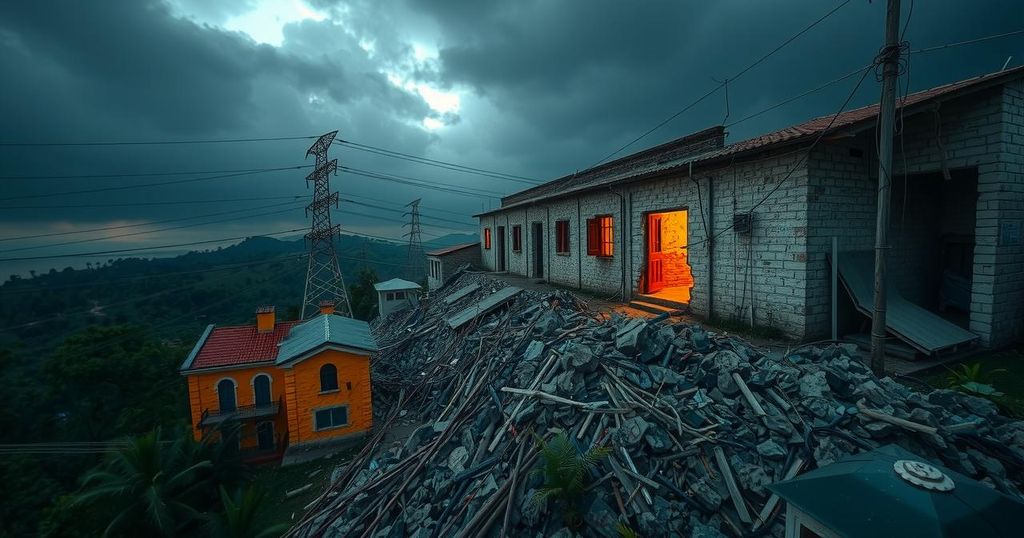Cuba was shaken by a 6.8 magnitude earthquake on Sunday, following weeks of turmoil caused by hurricanes and extensive blackouts. The earthquake’s epicenter lay 25 miles south of Bartolomé Masó, and while no immediate injuries or damages were reported, residents expressed their distress. This disaster follows a hurricane that resulted in widespread destruction and power outages, which have led to growing public discontent.
On Sunday, eastern Cuba experienced a significant earthquake measuring 6.8 on the Richter scale, following a period marked by extreme weather and prolonged blackouts. The earthquake’s epicenter was located approximately 25 miles south of Bartolomé Masó, as reported by the United States Geological Survey. The tremors were felt throughout the eastern regions, including Santiago de Cuba, where residents evacuated their homes and gathered in the streets amid ongoing uncertainty and fear. Although Yolanda Tabío, a local resident of 76 years, expressed that she felt aftershocks, there have been no immediate reports of injuries or damages as of now. The earthquake adds to a series of challenges faced by the island recently. Just days earlier, Hurricane Rafael, categorized as a Category 3 storm, devastated western Cuba, leading to widespread power outages and destruction of homes, impacting hundreds of thousands of individuals. This hurricane followed a period of severe blackouts attributed to the ongoing energy crisis that has plagued the country. In October, Cuba endured extensive power outages and the aftermath of a formidable hurricane which resulted in fatalities and additional damage. The continuous frustrations stemming from these crises have sparked protests among the citizens who are struggling to survive.
Cuba has faced a multitude of natural disasters recently, including hurricanes and earthquakes that have tested the resilience of its population and infrastructure. The nation has been grappling with an ongoing energy crisis that has led to extensive power outages, exacerbating already difficult living conditions. These environmental and infrastructural challenges are contributing to growing discontent among the population, which has manifested in various forms of protest as citizens voice their frustrations regarding their living conditions and governance.
In conclusion, the recent 6.8 magnitude earthquake has added to the numerous difficulties faced by Cuba, including hurricanes and a dire energy crisis. This seismic event has not caused immediate reported damages or injuries; however, it underscores the ongoing plight of the Cuban people, who are concurrently navigating the aftermath of recent natural disasters and persistent power outages. As the situation evolves, the resilience of the Cuban population remains a focal point in overcoming these adversities.
Original Source: www.independent.co.uk






